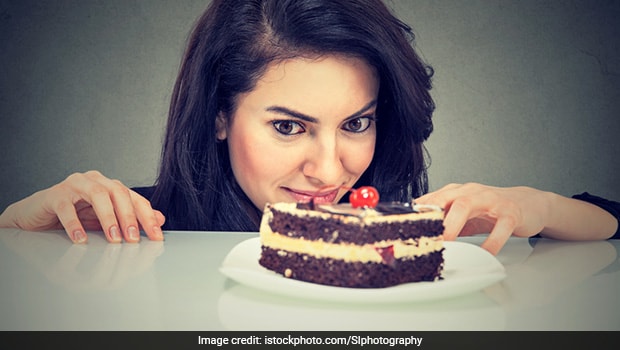(Also read: Are You Struggling With an Eating Disorder?)

While it may take long for the consequences to physically occur, you begin to feel emotionally drained. While gaining weight due to excessive eating may seem like a acceptable consequence, eating junk and oily food can create havoc for the heart, it can lead to rise in cholesterol levels and blood pressure. Look out for these signs. It is more complicated that you think and difficult to diagnose but these experiences may give you a hint.
1. Do you indulge in compulsive, unhealthy overeating? Compulsive overeating is a form of behavioral change that shows physically when one is addicted to food. You get so pre-occupied with the behavior of eating, that you yourself don't realize the behaviors you engage in.
2. You eat more and more only to discover that you're not satisfied with that amount. This begins to burden you emotionally.
3. Even after feeding your body with the correct amount of nutrition it desires, you continue to crave more and the cravings reach a dangerous level, to the extent that you cannot control your brain from wanting more food. Especially food that is rich in wheat, sugar or fats.
4. When you begin eating, you find it hard on yourself to stop eating such that you experience a feeling of being "stuffed" excessively, at the end of your meal.
5. While you do indulge in overeating, you end up feeling guilty for eating that pizza or that dessert. A second helping may be normal, however you often question yourself and regret it thereafter. But yet, the guilt does not hamper your desire for more.
6. Do you feel ashamed and hide your unhealthy habits from others? You feel extremely conscious when you take another helping, try to conceal your behavior by avoiding to eat in front of another person and feel stressed ordering the unhealthiest of foods when you're out with your peers.

Diagnosing the fact that you are addicted to food is the first step towards betterment. Avoid foods that trigger the pleasure button in the brain. By listing them down, you tend to remind yourself of the harmful effects that those foods can have on your body and your brain and consciously will begin to make an effort to resist those foods. Set dates and goals that will enable you to get going.
If nothing works, seek professional help. Food addiction is a serious problem but a general lack of awareness of the causes and consequences of the issue make it difficult to diagnose and treat it.
It may not be a cause of worry now, but it can turn into an alarming situation if not caught at the right time.








